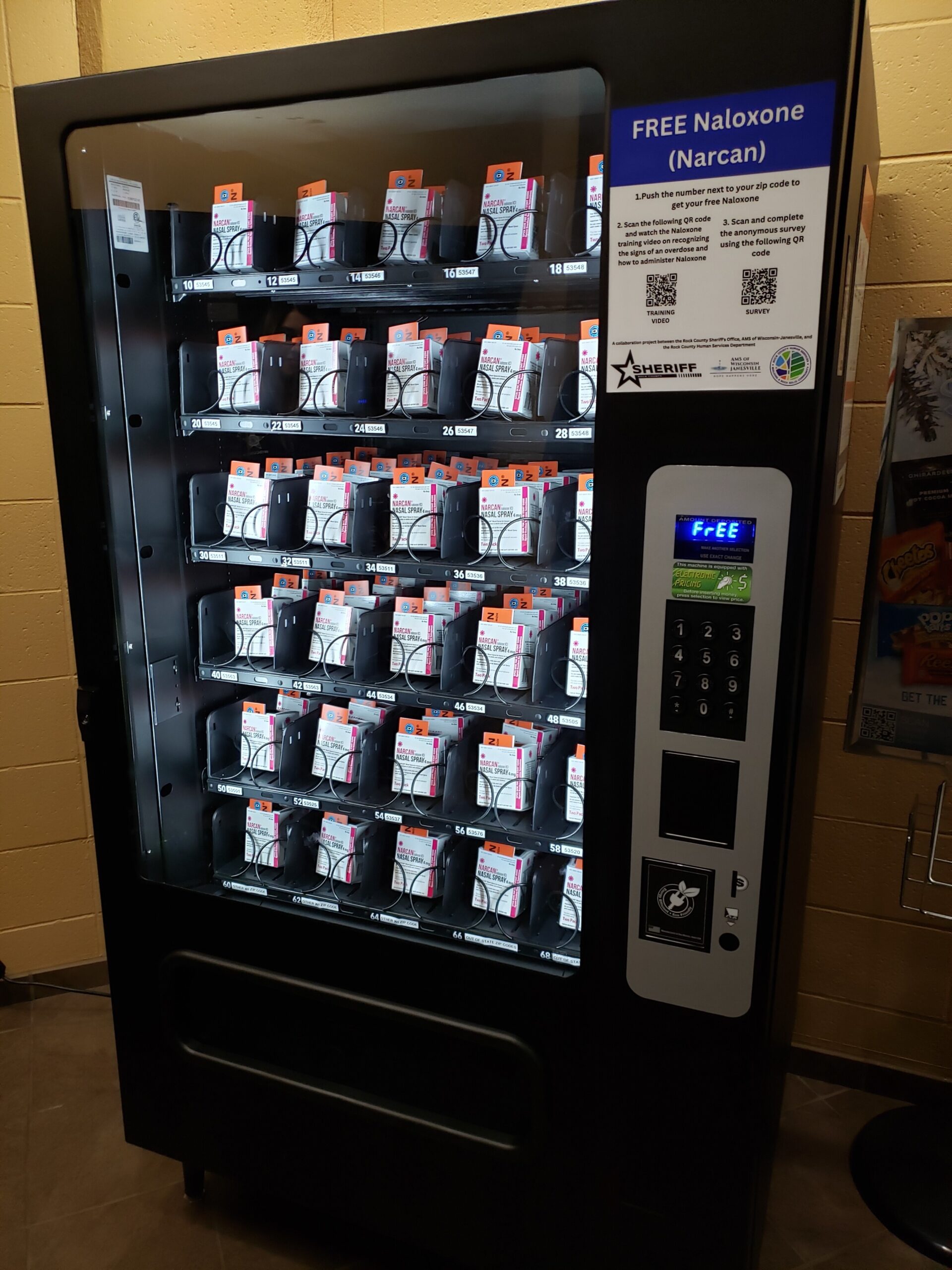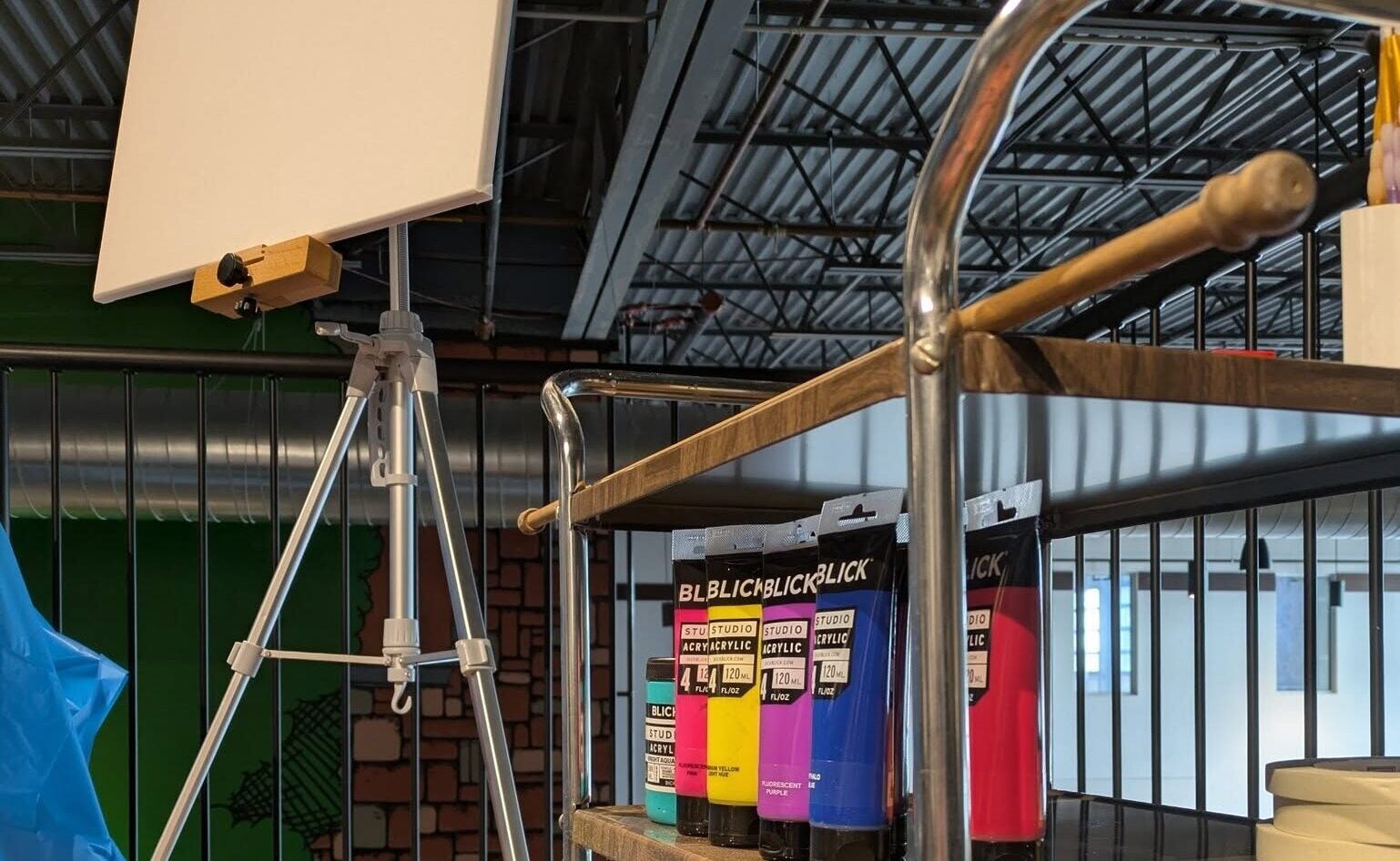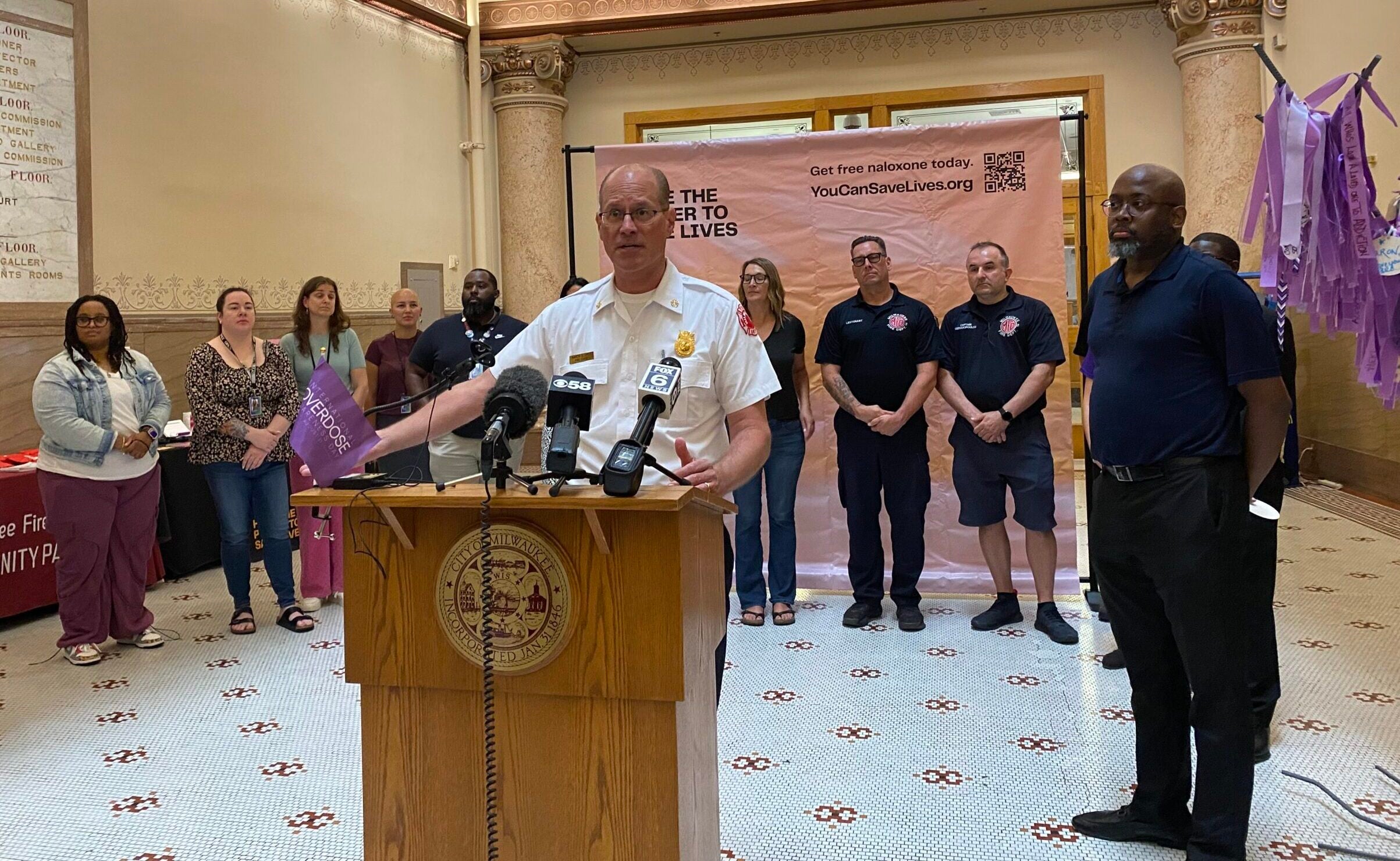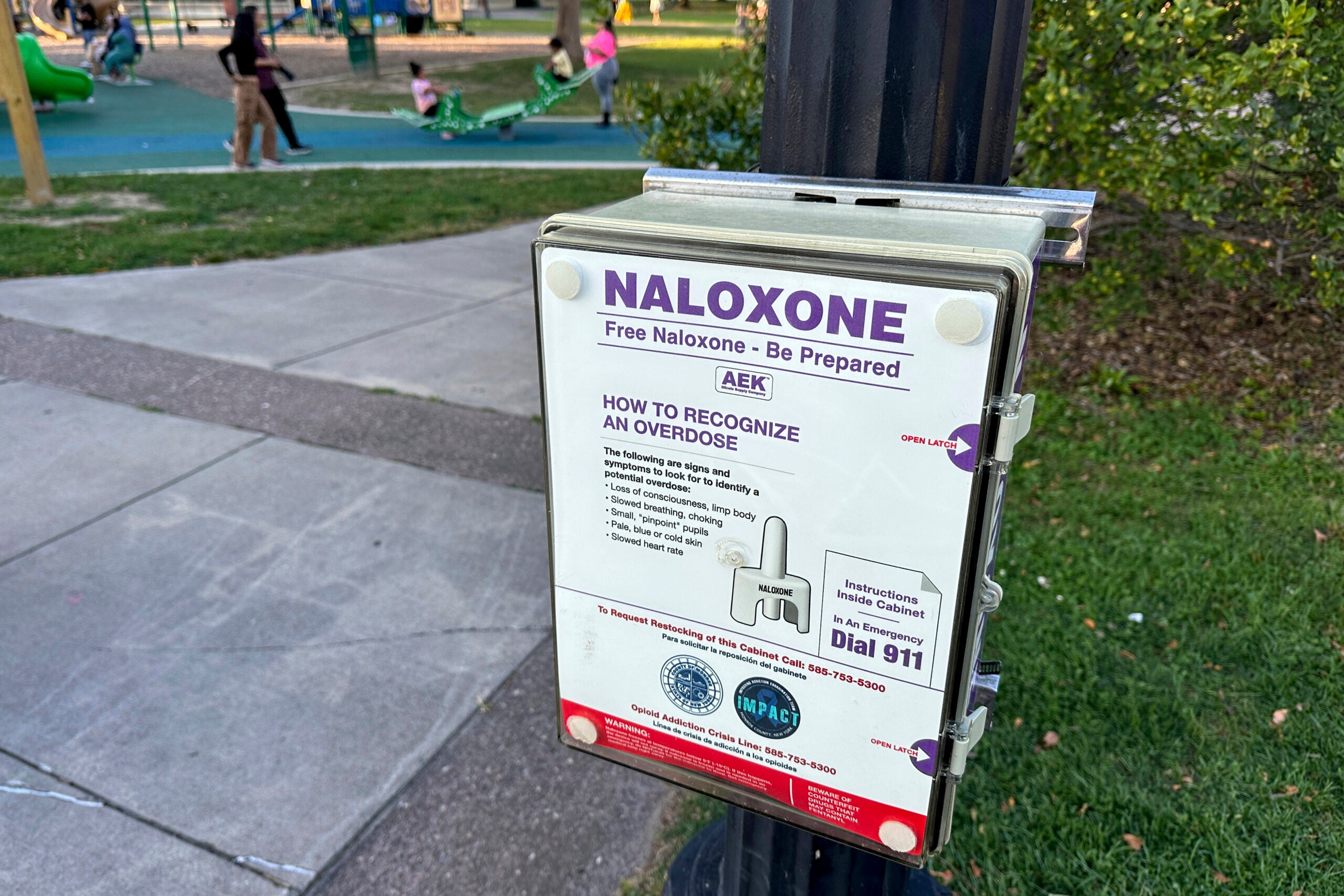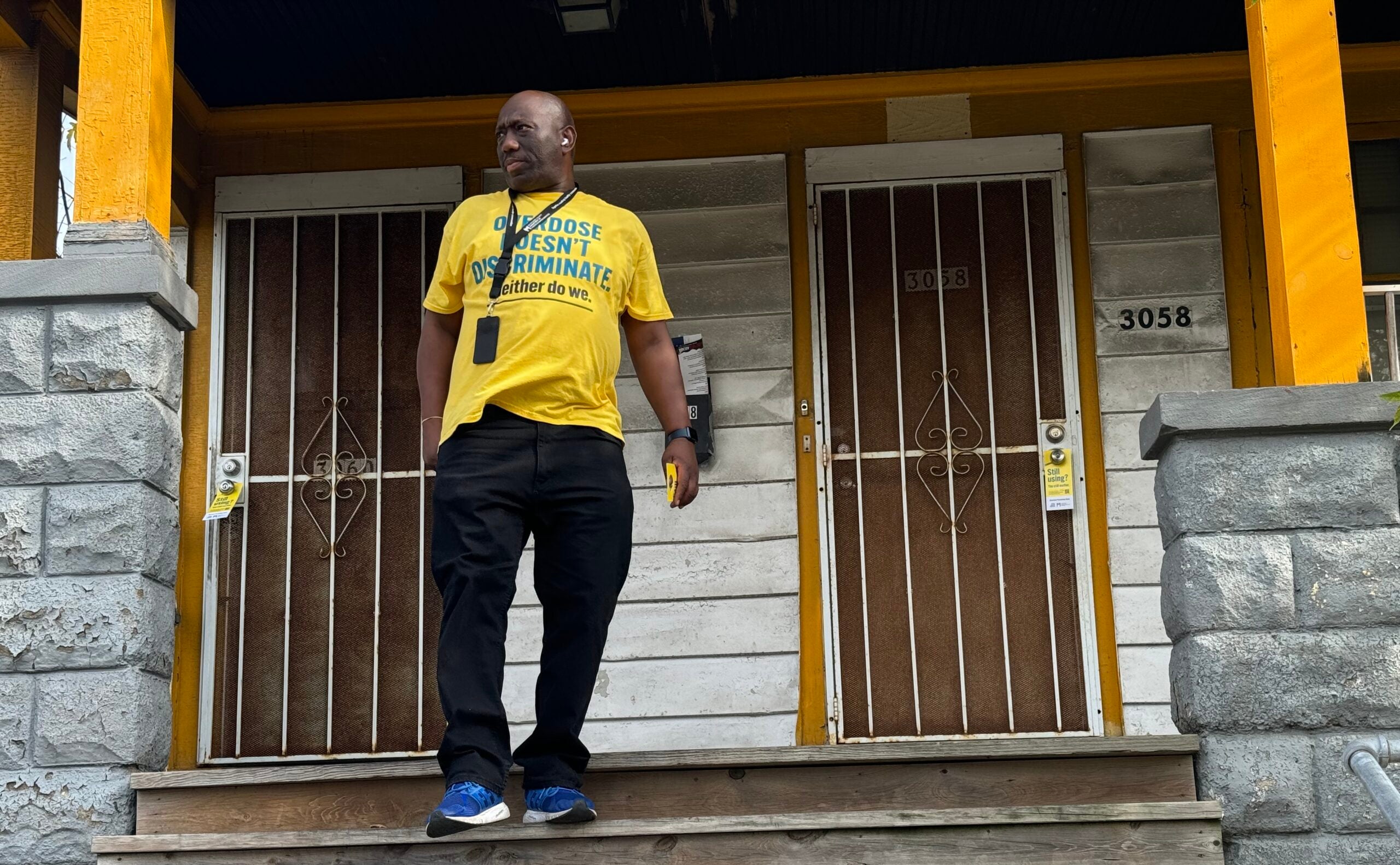The Taylor County Health Department will soon launch its first outdoor harm reduction vending machine, part of a growing effort to combat opioid abuse and deaths by suicide in rural areas where resources for prevention, treatment and recovery can be limited.
Two vending machines offering free Narcan, fentanyl test strips, gun locks, CPR kits and other lifesaving supplies are already installed at the Taylor County Courthouse and Human Services building and are available during regular business hours. The new machine will be accessible around the clock, ensuring access to resources without the stigma of entering a public building.
Melissa Moore, a public health foundationalist with the Taylor County Health Department, spoke with WPR on “Morning Edition” about the initiative. She said rural communities are especially vulnerable to opioid abuse and suicide risk.
News with a little more humanity
WPR’s “Wisconsin Today” newsletter keeps you connected to the state you love without feeling overwhelmed. No paywall. No agenda. No corporate filter.
Moore said a recent community health assessment showed a ratio of just one counselor for every 750 people in Taylor County, a statistic she fears will only become more dire in the future.
“When we look at access to things like gun locks or Narcan, these are the things that are keeping people alive in order to get them to that next step, including treatment,” Moore told WPR’s Shereen Siewert.
Critics argue that harm reduction strategies enable unsafe behavior and drug use, but advocates say the tools provide a crucial lifeline for people battling addiction and mental health issues.
“We know that these tools save lives and if we don’t have them, unfortunately we may lose more loved ones to addiction and suicide,” Moore said.
The following transcription was edited for brevity and clarity.
Shereen Siewert: When it comes to opioid abuse, how big an issue is this in rural communities as opposed to urban areas?
Melissa Moore: Well, I think much like any other public health type of programs, rural communities are at a deficit just based on our geography, based on our access to things like technology. It really does kind of put us behind in being able to respond in the event of an emergency, especially when we talk about the increase of substance use that has impacted communities across Wisconsin.
SS: How do the machines work?
MM: They are set up like a typical vending machine in banks with other machines at our two current locations. As we look at placing our third location, we’ll be looking at that same accessibility. You go up to the machine, you identify what it is that you need, you punch in some numbers and you’re able to access that at no cost, with the help of different grants that we’ve received as well as community partnerships.
We do ask people who use the machines to fill out a short survey just to help us know if and where the items are being used to help with our data tracking. They’re absolutely free with the support of our partners.
SS: How do you respond to critics who say the machines only enable and prolong drug abuse?
MM: We know that access to harm reduction tools such as Narcan or fentanyl test strips can be an issue that brings about debate. We also know that these tools save lives.
These are our family members, our friends, our community members, and we know we need to get them to the point where they want to take that critical step toward a journey of recovery. This is a chronic, relapsing disease and we know that every single opportunity we have to get them to that point is one that we need to take.
SS: Have you seen attitudes change over time?
MM: Having worked in public health for over 20 years, I can tell you that definitely the perceptions around substance use have changed. The more that we have people and families hearing the stories of being impacted by substance use, whether they’ve lost a loved one or know someone who struggled, this has helped in our ability to weave in harm reduction as part of our overall prevention strategy. We know that harm reduction saves lives and the benefits of having these machines in the community are great.
SS: How effective are the machines?
MM: In Taylor County, we’ve had our two existing machines both in the basement of the courthouse as well as in the lobby of Human Services for just about nine months.
In that time, we’ve distributed over 125 two-dose boxes of Narcan, 750 fentanyl test strips, 50 medication disposal bags, 125 gun locks, more than 300 first-aid kits and over 950 condoms. All these things working together help increase our public safety and improve our public health overall.
SS: What more do you think lawmakers could do to address this issue, especially in communities like yours?
MM: I think it’s really a combination of things. It’s not only about putting programs and services into the communities, but also about getting the community engaged in those efforts, supporting things like coalition work.
Recognizing that having people to help facilitate these conversations and communities is important, and I think often we become so focused on baking the cake that we forget that we could send someone to the moon. It’s not as simple as just investing in one piece because we’re all impacted by it, and we all play a part in the solution.
SS: Are these machines becoming more accessible and available throughout the state?
MM: I definitely think that they are becoming more readily available. The money that came into Wisconsin came in the form of federal pass-through funds to support these initiatives.
This will be our second round of funding, which will allow us to install an outdoor machine at a location yet to be determined. But funding is restricted to the machine, the installation and the naloxone and fentanyl test strips only. It doesn’t help support advertising. It doesn’t help support other lifesaving skills, which is why we rely heavily on our partners and other grants to make sure that these machines are going to benefit our community to the greatest extent.
SS: What is the benefit to having an outdoor machine as opposed to an indoor machine?
MM: Now, our vending machines are available only during regular business hours. They’re at places where there may be a stigma to go up to the machines. We’ve worked to put them in a place that’s not uncomfortable, with other vending machines such as beverage and snack machines, but we feel this is a way to make it easier for people to visit. An outdoor machine will help make these things accessible 24/7 in a location that’s readily available to the community.
If you have an idea about something in central Wisconsin you think we should talk about on “Morning Edition,” send it to us at central@wpr.org.

